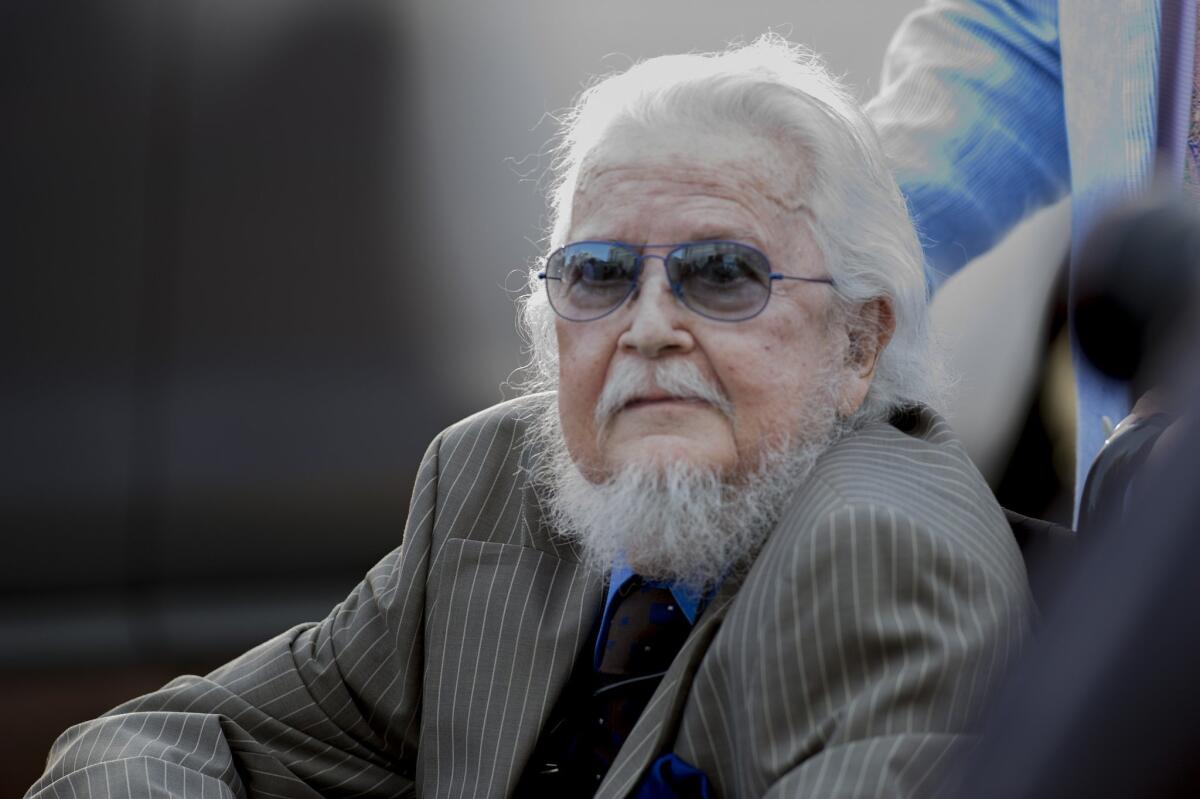Fernando del Paso wins prestigious Cervantes Prize

Mexican author Fernando del Paso, 80, was named winner of the prestigious Cervantes Prize on Thursday.
- Share via
Mexican author Fernando del Paso was awarded the Cervantes Prize on Thursday. The $135,000 award is the most prestigious Spanish-language literary prize.
The 80-year-old writer is known best worldwide for the massive and ambitious “Palinuro of Mexico.” The book was published in Spain in 1977, in Mexico in 1980 and won the award for best foreign novel when it was published in France in the mid-’80s. It wasn’t published in the United States until 1996.
Nominally about a medical student and his lovers and friends, the fever-dream of a novel has been celebrated for its scope, intelligence, energy and humor. The book was “an inspired, roller-coaster of a book about life and love in Mexico City,” the Los Angeles Times wrote in its review. “Dreamlike and fantastic, filled with sensuous, poetic language, a positively orgiastic love of life, bubbling humor and a special brand of literary alchemy, this pulsating novel still carries the same explosive punch of its first appearance in Spanish nearly 20 years ago.”
Talking to writer Ilan Stavans about whether the book had a baroque style, Del Paso explained, “the simplest definition of baroque is a style that tries to saturate space by abusing curves to the point of hyperbole, and you will agree with me that Coatlicue, the Aztec goddess, is indeed baroque. As for my own ‘barroquismo,’ it’s influenced by Rabelais and Joyce (who, by the way, isn’t exactly a baroque writer, but at the time isn’t far from one), and by more contemporary figures like Gunter Grass, Lezama Lima and Carpentier.”
Del Paso’s debut novel, “Jose Trigo,” published in Mexico in 1966, earned him literary fans, including Juan Rulfo and Octavio Paz. He got a fellowship that took him to Iowa City, and a few years later left for London, where he worked for the BBC for more than a decade, followed by another few years working as a journalist in Paris. Then he returned to Mexico, where he was part of the country’s diplomatic service and led a library named for Paz in Guadalajara.
His third novel, “News From the Empire,” published in English in 2009, is a multi-voiced narrative telling the story of Maximilian, briefly the emperor of Mexico, and his wife, Carlota, and was celebrated at home. He has also published plays and collections of poetry, and is a painter and visual artist. A later Del Paso novel, “Linda 67: Historia de un crimen,” has yet to see wide release in America.
“By nature I’m a baroque writer, extravagant and immoderate. This is a spontaneous drive in me,” Del Paso told Stavans. “At the same time, I’ve gone from an extremely complicated to a more accessible style. My third novel is notably less complex than the second and, similarly, the second is less difficult than the first. So I think I’ve made some progress -- my artistic route has been from excessive complexity to relative simplicity. As for what I would or wouldn’t change in the novel today, to be honest, it’s hard for me to say. Books are like children: once they are born, the world is theirs and they are part of the world, and our role shaping their lives diminishes as time goes by. They have their own virtues and their own paths, and the only thing one can do is witness their development and feel amazement by what they can or cannot achieve.”
Twitter: @paperhaus
More to Read
Sign up for our Book Club newsletter
Get the latest news, events and more from the Los Angeles Times Book Club, and help us get L.A. reading and talking.
You may occasionally receive promotional content from the Los Angeles Times.









